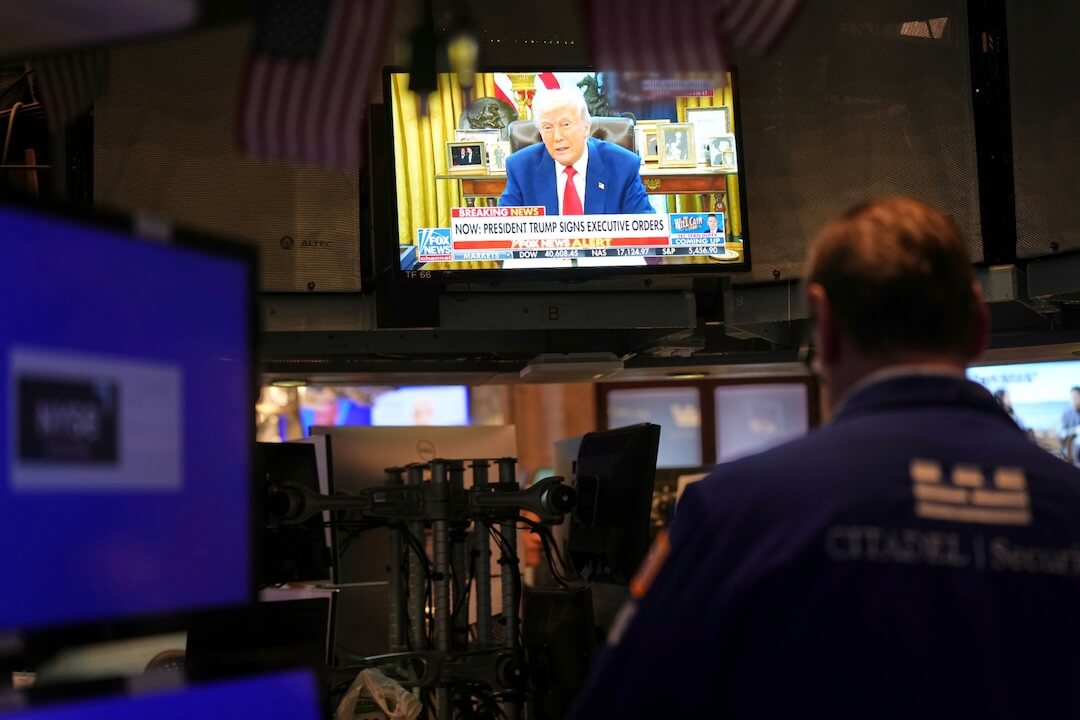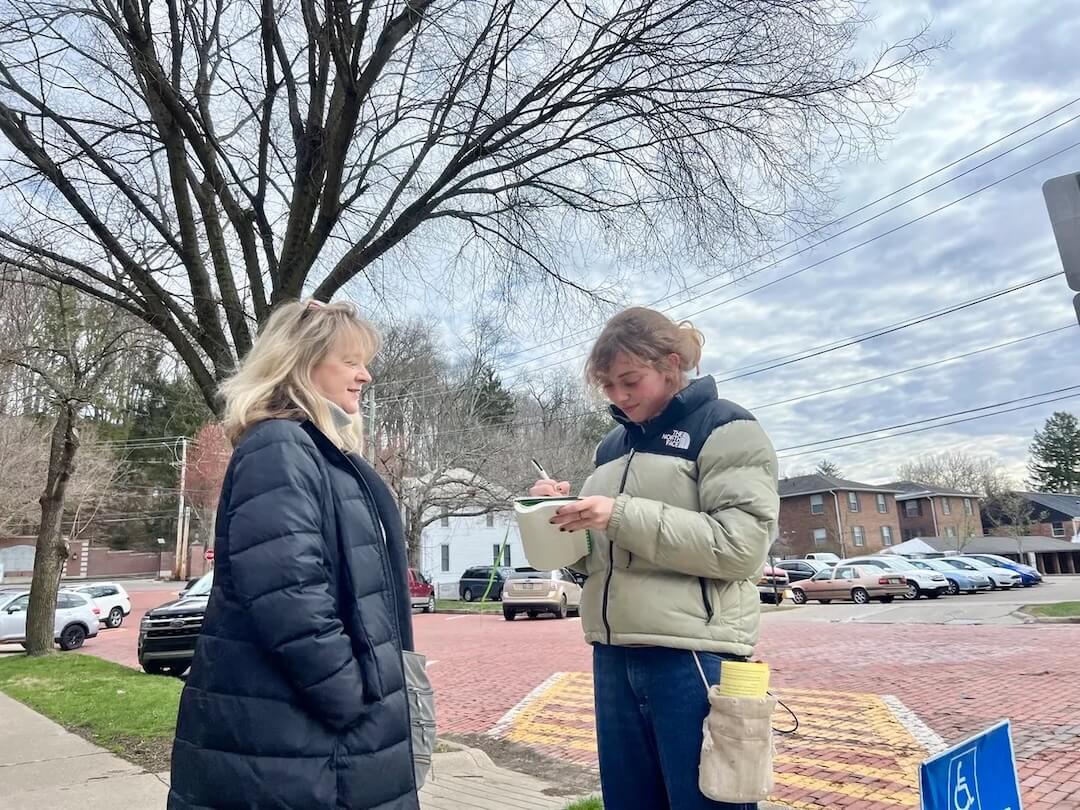Anayeli Ruiz was driving back to Houston from an assignment in McAllen, near the southern tip of Texas, when she received word from her station about a mass shooting in Uvalde. The reporter, who works for Houston-based television station KHOU, and photojournalist Marcelino Juárez turned right back around to cover the small city.
Outside Uvalde’s SSGT Willie de Leon Civic Center, Ruiz met anguished parents and relatives, eager to hear about their children and loved ones who were at Robb Elementary School when an 18-year-old shooter entered the building. She interviewed Federico Torres, who fled work after learning of the shooting to look for his 10-year-old son.
“My son’s name is Rojelio Torres,” the elder Torres said in Spanish. “Please, if you know anything, let us know.”
Ruiz posted the 45-second interview on Twitter, where views climbed rapidly as more news came out of Uvalde. Tragically, it was later reported that Rojelio was one of the 19 child victims. Two teachers were also killed.
Ruiz spoke with Poynter late last week about covering this tragedy.
This interview has been edited for clarity and brevity.
Firstly, how are you doing now?
It is a story that I feel is emotionally draining. Even though we’re reporters and we’re not supposed to show emotions, you still feel when a parent is crying next to you. You can feel their grief, and it’s emotional. It really does take a toll on you.
I can only imagine. And how are your colleagues doing now? I know local reporters and reporters from other cities have been covering this story.
I think everyone — just like me — is just having a hard time because you imagine your loved ones if you have kids, your nieces, your nephews. These are innocent babies enjoying their last week of school. Some of them had a certificate ceremony that same morning. It’s unimaginable.
It’s really hard on everyone. Our station has been really good about giving us time to cope, to process. They’re constantly checking up on us to make sure we’re OK. Even when we’re off, it’s kind of hard to turn off because at the end of the day you feel guilty because you know your family is OK, your loved ones are OK, but you’re thinking about these loved ones whose lives are just completely just changed forever.
You interviewed Federico Torres, one of the fathers of the victims, back when he was still searching for his son. The video you posted of your exchange with him was shared widely. What were you hoping to achieve in telling his story?
I wanted to share, more than anything, what parents were feeling at the moment, what anxiety and anguish they were going through as they’re just waiting — going back and forth from the hospital, down to the civic center, and not knowing anything about their children. It was horrible. I don’t know how to explain it, but it’s just a horrible feeling. You feel like your hands are tied. You want to help them, but you don’t know how.
The only way I could do it was to put his face out there, and his name, and his son’s name. Even though I work for an English-speaking station and even though he spoke in Spanish, you could feel his pain. You didn’t need to understand English. You could feel his pain. You could see his pain. You could see his anguish, and that’s why I decided to share it.
I think a lot of people appreciated you telling his story and it was just so tragic to learn later that his son was one of the victims. Being that you work in a very visual medium, how do you approach family members and survivors and how does the camera affect those conversations?
The entire time that I was there, I will say I approached families with respect. I did not approach them with a big camera in their face. I left my cameraman behind. You saw the video of Federico; it was in my cell phone because my cameraman was behind. I found it a lot easier to talk to these families who are going through a horrible time. Just personally going and talking to them as a human.
And then, if they felt comfortable, I didn’t even go and get my photographer. I said ‘You know what, I’ll just pull up my phone and make it easier.’ I felt like it was less threatening for them. … You try to treat people like you would want your family to be treated — with respect and dignity. And you have to remember, they’re going through something very traumatic at that moment. You just want to make sure that you’re careful with their feelings as well. They’re not just a story. They’re actual humans.
What can you share about the community of Uvalde?
It’s a small community and predominantly Hispanic. It’s close to the border, so they do have Border Patrol presence in the area. It’s not a big city. Everyone knows everyone, so unfortunately during this tragedy, even those who didn’t have kids that passed, or those who were fortunate that their family members survived, they still have a friend or a cousin or someone in their family who was affected by this tragedy. This entire town is, as you can imagine, devastated by this.
What do you want the rest of the country to know about this tragedy as someone who has been reporting on it?
This town has been changed forever. It’s never going to be the same. These parents are telling me there’s no money in the world, there’s nothing that’s ever going to bring their kids back. And now a lot of them are just hoping that this doesn’t happen again. I guess that’s the biggest thing is, how do we make sure that this doesn’t happen again? I think that’s what a lot of people want to see done.

Anayeli Ruiz, a reporter for Houston-based television station KHOU, has been one of many reporters covering the mass shooting at Robb Elementary School in Uvalde, Texas. (Courtesy: Anayeli Ruiz)
There has been a lot of conflicting information from authorities on what occurred during the shooting, as far as police response. Has it been difficult for you and the other reporters to keep track of this information?
Yes, it really has. A lot of people were posting on social media how parents were outside while the gunman was inside and they’re trying to go indoors, and so that was the biggest question for authorities is why did it take so long for people to break through that door? Today the Department of Public Safety said officers made the wrong choice. They should have breached the classroom sooner. That’s huge news because, like I said, a lot of people have been saying that for a while. And for police to actually confirm that, and come out and say like, ‘Hey, the commanding officer did wrong. He should have broken into the classroom,’ I think that’s just even more heartbreaking for people to hear that. They could have gone in sooner, but they didn’t.
It’s so sad because you think perhaps more kids and teachers could have been saved. You mentioned that you are returning to Uvalde. What would you like to achieve in continuing to tell this story?
I definitely want to continue with sharing the stories of those victims. I think the most important thing is honoring those people who were killed — those kids, the teachers — and being able to hopefully also shed some light into why they didn’t go in, what was happening. … I think a lot of people are saying “gun reform,” other people are not, so it’s just a constant battle that I think hopefully this tragedy can bring something good out of.
Thank you so much for speaking with me and I am so incredibly sorry for this tragedy. It’s heartbreaking. I want to thank you and your station and the other local reporters for your hard work. I can’t imagine how difficult this is.
One more thing before you leave. This is the importance of why you should have good representation in your newsroom. You need to have Latinos out there as well because this is a predominantly Latino community. When I was talking to some parents, some felt more comfortable in Spanish, some felt comfortable in English. But I will say other reporters were standing next to me and they were like, “What did he say?” or, “What did they say?” They were wanting to know what parents were saying and it’s sad that these reporters can’t communicate with the victims because of a barrier.
I think it’s important for stations to realize just how important it is to have those bilingual reporters representing those people because, at the end of the day, a lot of these victims feel much more comfortable (speaking in their native language). When you’re in pain, you speak the language you’re comfortable in. And for a lot of people, it was Spanish. These reporters could not talk to these parents, because they didn’t speak the same language. It was just so important. It was a little frustrating, like how do you translate pain in that moment? That was just one of the most important things that I think I saw.






